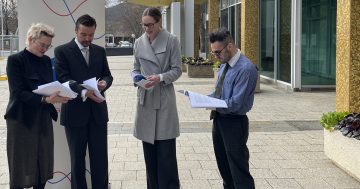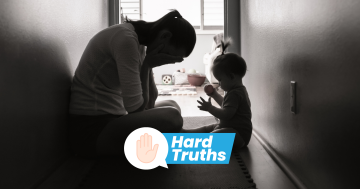
Governments need to address the structural inequalities that contribute to women’s homelessness. Photo: File.
In recent weeks we have heard much commentary about the housing affordability crisis in Canberra, including concerns about long public housing waitlists. Among this commentary, the triggers for homelessness have only rated a passing mention.
The triggers for homelessness among women are well documented both in research and policy. Triggers often referenced include an experience of sexual abuse; neglect; abandonment and/or family breakdown; experience of violence; and bereavement.
These life experiences are known challenges for some of the women Karinya House walks alongside.
However, what is left unexamined in the listing of these ‘bibliographic experiences’ are the structural inequalities that underpin and shape these life experiences.
The fabric of our society still does not provide men and women with an equal chance.
Issues related to the persistent gendered pay gap and the lack of affordable and flexible childcare, and how both impact on women’s economic stability and independence, all have a bearing on the triggers for homelessness. As does timely and affordable access to trauma informed holistic health care and pathways back into education.
Any response to homelessness among women and children must address these structural inequalities, along with providing the space and time for women to explore, understand and address their personal circumstances.
The unique practice framework and funding model of Karinya House leads women to being surrounded by a care team which works in partnership with an individual woman to identify her priorities, and co-design and work towards her goals. The length of this journey is determined by the individual woman and not funding or program KPIs.
If we are to address the rising tide of homelessness, especially among women, we must have a ‘joined up’, connected response that works to address the structural inequalities that sit behind personal experiences.
At the same time, we must demand greater and more creative responses to ensuring all Canberrans can access safe and affordable housing, and we must demand an income support system that affords respect, recognition and dignity.
This article’s author, Belinda Munn, is the executive officer at Karinya House and is currently a PhD candidate exploring issues of gender and power within the context of homelessness. This includes trying to understand how practice based within a social justice pedagogy framework can create different possibilities.





















